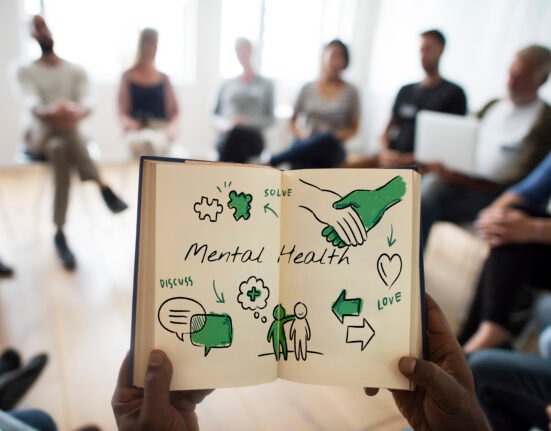Instead of taking a straight path, professional development is a journey full of obstacles and turning points. But what distinguishes truly effective professionals is deliberate self-reflection, not just experience. People who regularly reflect turn mistakes into teaching moments and successes into motivation for growth. Using empirical research and well-established models from organisational psychology, workplace learning, and medical education, this article examines the value of reflection.
Making Errors and Gaining Knowledge in Daily Work
Studies conducted in organisational settings support the findings in healthcare: According to a 2008 study published in the Journal of Workplace Learning, cultures that view mistakes as opportunities typically demonstrate positive error handling and development. Reflection combines meta-cognitive processes and strong presage factors, according to a 2022 Springer review that examined individual learning from mistakes in nursing and corporate settings. However, explicit outcome-focused research is still required. This demonstrates how deliberate reflection serves as a link between organisational learning and personal introspection.
Why Is Self-Reflection Within Learning Important?
Self-reflection within learning importance was recognized by the IB as early as 2018 when they chose to include self-reflection in all learning and teaching entirely. After this modification, self-reflection became a component of a continuous learning process rather than a part of a learning process itself.
1. The Opportunity to Consider Your Thought Processes
Metacognition, or thinking about thinking, is another benefit of self-reflection. After all, how can you be a better learner if you do not examine your own thought processes? When learning tasks are passively completed, we do not have enough time to reflect on either the learning or the lessons, meaning we are most likely unable to recall the information.
2. Self-Evaluation
Moreover, self-reflection also means that students now have an opportunity to evaluate their own strengths and weaknesses and establish a path of positive self-evaluation, which, importantly, includes talking about the negatives. This enables students to mark their own achievements and progress, create ownership around their work for future growth, and allow students to reflect on their own learning.
3. Enhanced Engagement
After completing learning tasks, if students are allowed to reflect on or consider their work, you will not only keep their full engagement in class but also help make the concepts more deeply embedded for longer periods. Thus, self-reflection assists us in not only improving our memory but also keeps our brains engaged and is the perfect way to reflect on learning. There are many ways to reflect; however, we have compiled some ideas that you can suggest to your students for engaging in self-reflection, and some ideas on how you can collect some qualitative data to inform your teaching.
Read More: Cognitive Biases That Secretly Control Your Decisions – And How to Outsmart Them
Reflection as a Method for Professional Development
While overthinking can generate anxiousness and trap people into a cycle of negative thinking, reflection is a mechanism that can help people move toward personal and professional development. Overthinking tends to be negative and repetitive. People get stuck in their thoughts about what went wrong, usually providing self-criticism, without coming to any reasonable resolution. Reflection is deliberate and growth-oriented, and it differs from overthinking. It involves actively reviewing an incident, the lessons learnt, and how to apply those lessons moving forward.
While the ultimate goal is not perfection, reflection is focused on the inevitable steps of progress, limiting one’s self-doubt and being aware of the steps of development, learning, and applying one’s own personal learning and development process to generate growth and to become more resilient in their career. Reflection becomes this powerful personal development tool when acting on the focus of learning rather than the loss of opportunities or talents one feels they lost.
Read More: The Science of Personal Transformation: Can People Really Change?
Reflection Writing
If you are an over think, here is an easy strategy which is useful. The idea is to make the shift from dwelling on the negative to making meaning, learning, and celebrating the positive.
Step 1: Look at the Situation Objectively
First, take a look at what happened, and do so in a way that you have no emotional connection to it. What was the situation? What did you say or do, or what was the response from others? Just recognise the event as it was.
Step 2: What happened?
With this, let’s shift the lens away from what went wrong and look at the whole picture. Was it as bad as you thought at the time? Did you overlook a critical element? As you take a destructive look at this event, you might be surprised to find that what you thought went wrong at the time wasn’t as bad as you make it out to be. And it’s okay if you did see something negative as long as you accept responsibility for it, learn from it, and make a commitment to never encounter it again.
Step 3: What Can I Find Out?
This is where reflection takes charge as a learning experience. Where can you learn from the experience? Could you have done something different? This does not mean being hard on yourself; it’s about learning. You may have left with an idea of how you would behave in similar situations differently, or have learned something new about yourself with regard to communication styles or coping with stress.
Step 4: How might I apply this?
After this, you should think about how you will apply your learning. What sort of actions can you take based on your learning? Maybe it is simply talking to a colleague to clarify misunderstandings, or maybe it changes the way you are approaching the next project. Reflection will only be effective if you make an actual, intentional change; otherwise, it is just overthinking under a different name.
Step 5: What can I be proud of?
Rather than just thinking about flaws, reflection allows you to think about what went well. What small wins or successes can you be proud of? Maybe you remained calm under pressure, or perhaps you set up a difficult conversation without losing your patience? Recognising your wins contributes to building confidence and resilience, just like being able to learn from your failures is valuable.
The Value of Reflection in Professional Development
Reflection is an incredibly effective form of professional development. It allows you to stop, take stock of your actions, and move forward with greater intention. It enhances resilience, self-awareness, and emotional intelligence, all essential components of long-term success. The time spent will feel wasted in the moment, but you will benefit from the value of the time you spent reflecting. You are truly investing in yourself professionally and personally.
It’s a big change to go from overanalysing to reflecting. You no longer feel as though you’re caught in a never-ending cycle of self-doubt and introspection. You have more awareness and a sense of thinking and acting with a sense of control. And like any practice, the shift to familiar territory makes getting back on the horse a little bit easier the more you practice. It will always be more intentional when reflected upon rather than getting caught in an overthinking spiral. So next time you catch yourself in an overthinking spiral, follow this process—you may surprise yourself with the clarity and growth you achieve.
Read More: Why Emotionally Intelligent People Succeed More, According to Psychology
Conclusion
Self-reflection is a powerful practice that can change the practice from ruminating and self-sabotage to learning and developing with purpose. Reflection is purposeful, a single and constructive event that produces action, while overthinking, is emotional and repetitive. Reflection gives individuals an opportunity to learn from our blunders and our successes, which in turn, develops emotional intelligence, resilience, and professional awareness.
In education, healthcare, and organisational psychology, research demonstrates that when professionals think reflectively, they develop better engagement, better decision-making ability, and develop evidence-based self-direction. Whether it is through structured writing, meta-cognitive practice, or self-evaluation with guided questions, reflection is a mechanism for cognition, and reflection is also a connector between experience and meaningful development.
In the end, reflection is not just about a skill; it is a way of thinking. Reflection is understanding that every failure can provide a lesson, and every success can open the doors to further advancement. While there are distinct benefits for individuals in a one-off reflection practice, those who reflect regularly and cumulatively will start to relish in a sense of control, confidence, and clarity for long-lasting overall benefit.
References +
Edmentum Inc. (2025, June 30). The importance of Self-Reflection in learning. Edmentum. https://www.edmentum.com/intl/articles/self-reflection-in-learning
Mardock, K. (2025, January 19). Reflection as a tool for professional growth. Imagine | Johns Hopkins University. https://imagine.jhu.edu/blog/2025/01/14/reflection-as-a-tool-for-professional-growth/













Leave feedback about this